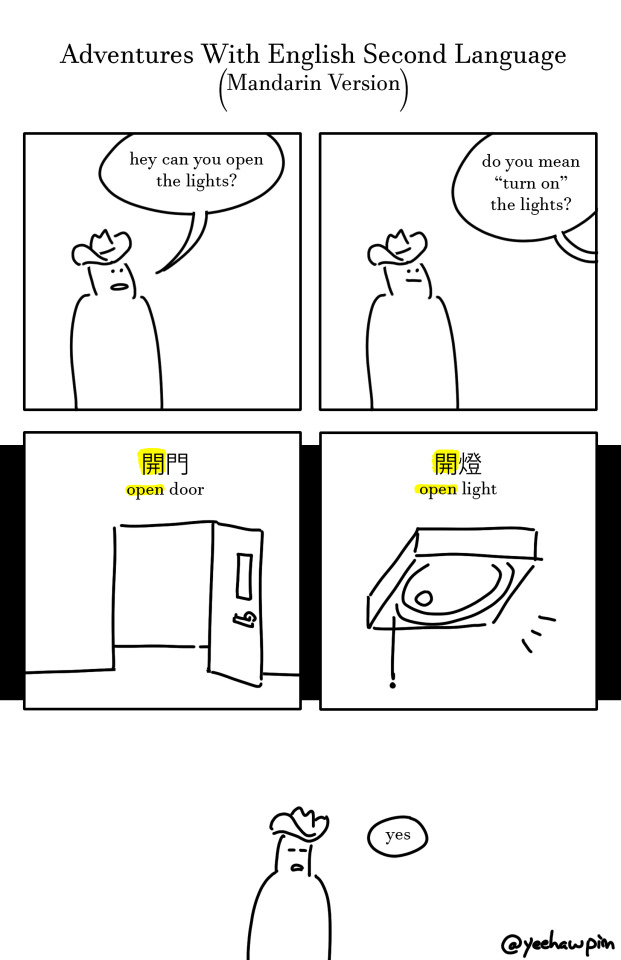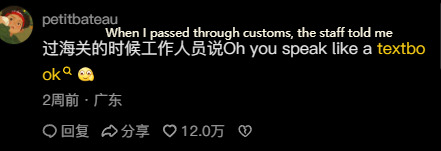#languages and linguistics
Note
Any thoughts on Clone and/or Jedi language?
Too Many of them 😅
The biggest thing on my mind for trooper languages right now is that Jaster was a Journeyman Protector and so was Jango's bio dad, so Boba, the Alphas, and any CCs or CTs the Alphas trained directly most likely speak JP dialect Mando'a like Bacara does. I have sound change rules written up for converting standard Mando'a to JP but I need to finish transliterating the established dictionary before I can feed everything to Vulgar and generate the remaining vocabulary.
I think besides Mando'a, the clones probably haven't been exposed to many languages besides Galactic Basic and various common languages like Shyriiwook and Gand where the speakers can't translate themselves due to structural differences in the vocal tract.
For Jedi, I've created [counts on fingers] four? Sleheyr, Kimpian, Dyungzilyu - three! I've created three languages for various slave communities in the galaxy (inspired by fialleril's Amatakka) that are spoken by different members of the Jedi Order. Not all of them, as they're all closed languages, but enough that there's a sort of cultural exchange going on in the Temple. Those that aren't rescued slaves themselves are trusted rescuers who have been taught by Elders.
Sleheyr uses custom phenomes and is spoken by the Prosmyi (sky-children) of Sleheyron and is integral to my OC Taio Pallas. Kimpian uses Farsi phenomes for the most part and is spoken on Nar Shaddaa and in one of my WIPs, Nico Diath offers to get permission from an Elder to teach Eeth Koth, who was born a slave in my headcanon. Dyungzilyu uses Mandarin phenomes with slightly different spelling (but just as many diacritics) and is spoken on Bandomeer.
I'll actually share a snippet real quick. This is a giant time and dimension travel groupchat epistolary fic. This is 10yo Anakin (one year post-TPM) and 49yo Obi-Wan (eleven years post-RotS), while Taio is from 1½-2 years post-AotC and is the same age as the Anakin in her time. Aayla, Eeth, and the clones are from one year post-AotC while Nico is roughly three years pre-AotC.
Anakin Skywalker: Yithai, bliv gey yi kid muv beyng thev mim. Okay! I’m gonna practice it!
Taio Pallas: Don’t forget to tell your teacher that you want to meet me and Kalo, he’ll be able to schedule it with Master Nu. You’ll also need to tell him you have a tracker and need to have it removed, he probably doesn’t know.
Kenobi: I can confirm that he does not. Also, Anakin, if you want to get his attention, call him yēngun. It’s Dyungzilyu for teacher.
Taio Pallas: You too?
Kenobi: Unfortunately, I had an eventful Padawanship.
Windu: Bandomeer was your initiatehood.
Kenobi: That, too. Really, though, it was only a year.
Taio Pallas: Mine was only two, and I don’t remember it. You were trusted enough to be taught the language, which makes you one of us.
Aaylas’ecura: Ca jehsa eyi ca jehsa eyi ca jehsa eyi
Eeth Koth: Jee-jee vaa tula goola.
Anakin Skywalker: U settah huttese?
Eeth Koth: I do. I don’t remember if my people on Nar Shaddaa had their own language or what it was. I was three when my parents abandoned me on the streets instead of killing me like Master ordered, and four when I was Found. I only know that much because I told my Finder and they remembered and made sure to tell me when I was old enough to ask.
Nico Diath: Could’ve said something. You want Kimpian, I’ll see if I can find an Elder or Keeper on my way back to Coruscant, get permission to teach you.
Gree: So many culture, language, and history subchannels, this is great.
Taio Pallas: And of course the Vode are welcome, too, since you all come from a background of slavery.
8826: Well I wanted to but now that you’ve said something…
Gree: Don’t be a bastard, Neyo.
Bacara: He can’t help it, it’s his one setting.
Taio Pallas: I thought it was funny.
Anakin is practicing a Sleheyr greeting for meeting a fellow slave for the first time. Aayla is saying "one of us one of us one of us" in Ryl, and Eeth is saying "we can start a band" in Huttese, after which Anakin asks if he speaks Huttese.
I do also think the large number of languages spoken in the Temple results in a lot of mixed metaphors and a constantly developing creole formed primarily around Force-based jargon. Pretty much every Jedi is canonically multilingual, but this would be yet another reason for it.
Besides that, I'm a huge fan of the already existing Dai Bendu, which I hc is also a ceremonial language for Miralukka due to their shared history with the Jedi Order. (And I've crafted a fully developed Miralukkan common language as well. And a Kel Dor one. And a less developed Trandoshan one.)
If I let myself talk about languages any more, I'll never shut up. 😅 Thank you for the ask! This is one of my passions and another of my special interests (as I'm sure you cannot tell (sarcasm)) so I always love talking about it.
#/incoherent noises/#star wars#star wars the clone wars#clone troopers#jedi#jedi culture#clone trooper culture#long post#asked and answered#nice people and wrellow fiters#languages and linguistics#tw slavery#star wars slavery#slavery in star wars#slavery tw#slavery
27 notes
·
View notes
Text
English is fucked bc a windbreaker and something that breaks wind are two ENTIRELY different things.
2 notes
·
View notes
Text
It's been interesting seeing that post going around about how British people respond to American actors using British accents vs how Americans respond to British people using American accents.
My spicy take is that we're all way harsh on Americans but give a lot of leniency towards British actors.
Like, yeah, there are British actors that do a good enough job that I've been fooled into thinking they're American (see Hugh Laurie). But then there are just some British actors that attempt it and they end up sounding too shrill and monotone (see Benedict Cumberbatch) and have a difficult time emoting as they act.
Also, that talk about regionalism? Yeah, I've yet to see anyone British handle a Southerner accent all too well. And sometime they get the state wrong because a Texas accent is hella different than a Louisiana or Appalachians accent. I think the only non-Americans that do a successful job of Southern accents are Australians and New Zealanders. Their way of doing American accents in general is pretty good and seems effortless.
I am glad to be seeing more Americans pointing out that, like Britain, we too also have classism and regionalism and how that affects our media.
I have nothing else to add but say that I recommend watching the videos below. They do a great cover on how so many American accents came to be and they also include Latino, African-American, and Native American accents as well. Sometimes talk of American accents get a little too white for my liking and this avoids that.
youtube
youtube
3 notes
·
View notes
Text

39K notes
·
View notes
Text

when your grammar accidentally transfers
#original comic#artists on tumblr#comic#linguistics#mandarin#digital art#language#black and white#my comic#my art
40K notes
·
View notes
Text
look, I know I've talked about this essay (?) before but like,
If you ever needed a good demonstration of the quote "Any sufficiently advanced technology is indistinguishable from magic", have I got an exercise for you.
Somebody made a small article explaining the basics of atomic theory but it's written in Anglish. Anglish is basically a made-up version of English where they remove any elements (words, prefixes, etc) that were originally borrowed from romance languages like french and latin, as well as greek and other foreign loanwords, keeping only those of germanic origin.
What happens is an english which is for the most part intelligible, but since a lot everyday english, and especially the scientific vocabulary, has has heavy latin and greek influence, they have to make up new words from the existing germanic-english vocabulary. For me it kind of reads super viking-ey.
Anyway when you read this article on atomic theory, in Anglish called Uncleftish Beholding, you get this text which kind of reads like a fantasy novel. Like in my mind it feels like it recontextualizes advanced scientific concepts to explain it to a viking audience from ancient times.
Even though you're familiar with the scientific ideas, because it bypasses the normal language we use for these concepts, you get a chance to examine these ideas as if you were a visitor from another civilization - and guess what, it does feel like it's about magic. It has a mythical quality to it, like it feels like a book about magic written during viking times. For me this has the same vibe as reading deep magic lore from a Robert Jordan book.
#off topic#literature#language#linguistics#science#science history#science fiction#fantasy#physics#atomic theory#anglish#chemistry#robert jordan#the wheel of time#uncleftish beholding
42K notes
·
View notes
Text
Studying linguistics is actually so wonderful because when you explain youth slang to older professors, instead of complaining about how "your generation can't speak right/ you're butchering the language" they light up and go “really? That’s so wonderful! What an innovative construction! Isn't language wonderful?"
#linguistics#gen z slang#english#as people in the reblog pointed out!#most gen z slang comes from (or was appropriated from) aave#honestly I was just excited to talk about how people in my field actually get excited about non standard uses of English#instead of ridiculing speakers#and I tagged incorrectly and didn’t point out the very real issues of language and power and appropriation inherent in modern slang#in that much of it was appropriated#and even that which experiences language change in the wider culture still originated in aave#aave is just as linguistically valid as any other English dialect because it is a proper language#and the grammar is incredible!!!#habitual be is fantastic and an excellent example of how a richer case system or a certain case can render an adverb unnecessary#and the phonology is just beautiful#anyway I’m very sorry#I fucked up
21K notes
·
View notes
Text
calling my lover "mine" but not in the way that my toothbrush or notebook are mine, mine in the way my neighborhood is mine, and also everybody else's, "mine" like mine to tend to, mine to care for, mine to love. "mine" not like possession but devotion.
#nonbinary love#nblnb yearning#nb4nb#nblnb#wholesomeposting#yearning hours#ive been thinking about how some languages dont have a possessive tense#so you dont say “i have a thing” but rather “a thing is by me”#and like im not usually one for psycho linguistics and like critical thoughts etc etc etc#but i really like the framework of responsibility/commitment rather than ownership#i think about this mostly in terms of ecology#and relation to land#but i also love it as it applies to language shared between lovers#like i LOVE calling them mine or for them to call me theirs#but i'm also nonmonog and that was kinda weird to square for a while#and it clicked one time when i was talking about my neighborhood and i was like well#when i say my neighborhood or my city it's understood i'm not taking it away from anybody else#its understood i just mean the city where i live#so why cant we apply the same to lovers?#mine in the way i want to show up for you again and again#ok#done now
98K notes
·
View notes
Text

I mean that about sums it up
29K notes
·
View notes
Text
Every single person studying a language when they recognize the most basic word of the language in a text or a video

59K notes
·
View notes
Text
In the native dialect of Lesbos, Sappho's name is spelled "Psappho". I sometimes picture what it would have been like if that had been the spelling modern English had gone with. Imagine being psapphic.
11K notes
·
View notes
Text
When Special Interests Collide: 9-1-1 & Linguistics Edition
Peruvian and Mexican Spanish are unique dialects - heavily influenced by local indigenous languages - where several words don't even sound similar to each other. An "accent" isn't going to be what trips Eddie and Buck up when talking to each other, it's going to be slang and regional differences.
Think soda vs pop vs sodapop vs soft drink vs coke or coca-cola vs lemonade vs Sprite vs other brand names for lemon-lime soda. All equally correct ways to refer to the same thing, varying only by dialectical context and specificity. (In some parts of the South, all soda is coke or coca-cola. In some parts of the world as a whole, all lemon-lime soda is called lemonade while lemonade itself is lemon juice. In my part of the world, all lemon-lime soda is Sprite.)
Some dialects are more common - almost everyone in North America who learns Spanish in school learns Northeastern Mexican Spanish with Texan influence and almost everyone in Europe who learns Spanish the same way learns Castilian Spanish.
(Eddie may have learned any of the 10 dialects of Spanish local to Mexico from his family or even a Texican variant from before the border changed. He may also be fluent in Spanglish, which is a structured code-switching system between Spanish and English, with some creole words thrown in where appropriate to its own internal rules.)
Andean-Coastal Spanish is the most common form spoken in Peru out of five recognized dialects, and it's extremely common in Ecuador as well but almost unheard of in the United States and Canada.
It's not just "saying words funny" or "sounding like the white boy he is". It's far more like a Scots English speaker talking to a Bostonian. Which I'm aware sounds exactly like "saying words funny" to the uneducated, but that's why I'm making this post. <3
An accent is how the oral posture (the way the parts of your mouth move) of your native language affects how you say words in a learned language. It can also be how the posture of your native signed language affects how you form signs in others, or how the alphabet of your native language affects how you write characters and symbols in another alphabet.
You can have a strong accent, but not a bad accent.
A dialect is a variation of a language, with its own grammar, syntax, and vocabulary similar but distinct from other dialects of the same language. Or, in rare cases, grammar or vocabulary completely different from other dialects! Most dialects of the same language are mutually intelligible, meaning you can understand what the person means even if not what they say.
You can speak a different dialect or mimic a dialect badly, but you cannot speak a wrong dialect.
A language is a system of communication with distinct, nuanced rules governing how - and sometimes in which situations - it is used. Most languages are mutually unintelligible, meaning the speaker of one cannot understand the other at all. If two languages are from the same language family, they may be partially intelligible instead, meaning you can get the gist or pick up keywords, but you cannot understand completely.
In addition to speaking a different language, you can speak a wrong language or speak a language badly, depending on the context.
TL;DR: Peruvian and Mexican Spanish are dialects of the same language, with similar but different rules and vocabulary, which Buck would speak with an American accent. As a bilingual person, if Eddie learned Peruvian Spanish, he would likely speak it with an American accent on some words and a Mexican Spanish accent on others. If Buck was speaking Peruvian Spanish correctly and Eddie was speaking Mexican Spanish, they would mostly understand each other, but not completely, and their accents would not affect that.
#/incoherent noises/#911 tv show#911 eddie#911 buck#911 buddie#languages and linguistics#spanish dialects#dialect differences#tune in next time when i talk about the effects of the chicano movement on a mexican army man whose father lived through it#or not i mean it really depends on my goddamn energy#long post#tldr included
8 notes
·
View notes
Text
It's always so disappointing when sci fi and fantasy books call their languages "Basic" or "Common". No language is apolitical or universal: if they're all calling one language Basic, who made it that way? Why is THIS dialect "Common" and all the others are Special/Magical/Incomprehensible??? Show me even a hint of the politics, or give your language a real name
8K notes
·
View notes
Text
It's not what I expected by 我是阿彪叻



#china#douyin#video#funny#share your stories if you ever learn a second language and then talk to native speakers#language#linguistics
7K notes
·
View notes
Text

I came across the word "swaggereth" in a book from 1622 last night and felt like it should be shared with the world.
"Hee swaggereth, as though the whole Towne were his owne."
(source: Adagia in Latine and English, Erasmus, 1622.)
#honestly google english men's fashion in the 1620s#he swaggereth deservedly#history#1620s#english language#jacobean#swag#linguistics#things i find while researching other things
6K notes
·
View notes
